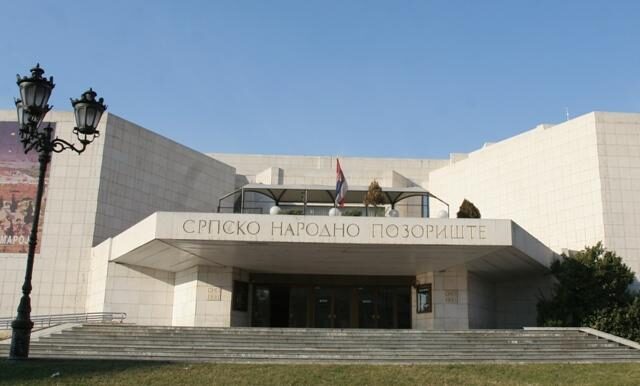There are more and more calls for help, appeals for solidarity when it comes to the most vulnerable groups for the occasions caused by the coronavirus pandemic. Among them are artists whose extraordinary circumstances disable their right to work.
Although that was their last intention, the Drama collective of the Serbian National Theatre became a shining example. To maintain any inflow of income for their mostly younger colleagues, actors, and actresses who play part-time at the Serbian National Theater, they transferred part of their earnings for March to their account. It’s almost 50 people who helped a dozen of their colleagues, which has become an example of collegiality and solidarity and much talked about.
“It was not our goal to write and talk about this, nor is it a solution to the problem,” the director of the SNT Drama, Milovan Filipović, underlined. We showed unity as a collective – actors, whisperers, stage managers – as much as anyone could, we gave a part of our personal income for colleagues who did not have it. We realized that we have a lot of young actors, “tied” to the SNT, who performed regularly, and then came to a situation where they were left without any source of income. We thought about renaming the funds intended for production which had been suspended, but that would mean a meeting of the Management Committee, a session of the Provincial Government, so we agreed to do it ourselves. In the meantime, this also succeeded, so the fees for April and May will be paid systematically.”
Filipović doesn’t hide that he was delighted with the response of his colleagues, because solidarity is a matter of individual decision and consciousness. It is neither a secret that for a long time now, in a large number of notable performances of the Serbian National Theater, occasional associates have captured the most attention.
“It cost us a lot in previous years that we were closed and that the best actors from the Academy of Arts in Novi Sad went to other theaters. Since the employment was banned[1], we have overcome this obstacle a bit, brought new blood to the ensemble,” Filipović said. “The structure of our casts has now changed significantly and it has started to pay off for us, with shows such as Smederevo 1941, Who Killed Janis Joplin?… It should be taken into account that these actors will carry the SNT repertoire in the future. That was one of the reasons why we were obliged to take care of those people now.”
As a reminder, theatres have not performed shows since March 11, and it is still unknown when they will start again. It was customary for everyone at the Serbian National Theatre to go on vacation from mid-July to the end of August, but now the circumstances have changed. Sterija’s Pozorje Festival[2], which traditionally uses the space of the SNT as the heart of the festival, was announced at the end of August, and Filipović would like for work to start before that, at least rehearsals of new performances if those from the repertoire could not be performed on stage.
Theatre will Survive
“We will find a solution!” – the director of the SNT Drama Milovan Filipović said about the perspective for work in the future. The theatre has lasted for three thousand years, it has survived the Inquisition, wars… We’ll find a way to function after this because we care about it.”
Igor Burić is a journalist and theatre critic from Novi Sad, Serbia.
[1] In late 2013, the Serbian government implemented austerity measures and employment ban in the public sector. Since the Serbian National Theatre is publicly owned and financed, it could not employ new full-time workers, only gig workers. The measures ended at the beginning of 2020.
[2] Sterija’s Pozorje is the biggest and most important national theatre festival in Serbia, traditionally held – under normal circumstances – in late May and early June.
This article was originally posted in Serbian in Dnevnik on 6th May 2020 and has been reposted with permission. Translation, footnotes and links by Borisav Matić. To read the original article, click here.
This post was written by the author in their personal capacity.The opinions expressed in this article are the author’s own and do not reflect the view of The Theatre Times, their staff or collaborators.
This post was written by Igor Burić.
The views expressed here belong to the author and do not necessarily reflect our views and opinions.


















